INTERNACIONAL
La extensa red de espías rusos que expuso el Reino Unido tras imponer sanciones sin precedentes contra el Kremlin

“Los espías del GRU están llevando a cabo una campaña para desestabilizar Europa, socavar la soberanía de Ucrania y amenazar la seguridad de los ciudadanos británicos. El Kremlin no debe tener ninguna duda: vemos lo que intentan hacer en las sombras y no lo toleraremos. Por eso estamos tomando medidas decisivas con sanciones contra los espías rusos”, declaró David Lammy, secretario de Asuntos Exteriores del Reino Unido, en una afirmación que marca el tono de la mayor ofensiva sancionadora jamás emprendida por Reino Unido contra los servicios de inteligencia rusos. La decisión, anunciada el viernes, expone a tres unidades de la temida agencia de inteligencia militar rusa, el GRU, y a 18 de sus oficiales, acusados de orquestar asesinatos, ciberataques y sabotajes en territorio británico y en otros países occidentales.
La medida, según detalló el Foreign Office, responde a una “campaña sostenida de actividad cibernética maliciosa”, así como a atentados encubiertos con explosivos e incendios provocados, cuyo objetivo ha sido minar la estabilidad de Occidente y obstaculizar el esfuerzo bélico de Ucrania. Esta acción, calificada como la mayor serie de sanciones impuesta por Reino Unido contra los servicios de inteligencia rusos, busca no solo castigar, sino también dificultar las operaciones futuras de los agentes identificados.
Aunque los sancionados residen en Rusia y es improbable que viajen a Reino Unido, lo que limita el alcance inmediato de las sanciones financieras y el congelamiento de activos, funcionarios británicos insisten en que la medida trasciende lo simbólico. “Exponer a un número tan grande de operativos rusos hará que les resulte difícil continuar con sus actividades delictivas en el futuro”, aseguraron fuentes oficiales a The Times.
El foco de las sanciones recae sobre el GRU, responsable de una serie de asesinatos en el extranjero y de operaciones encubiertas que han sacudido la seguridad europea en la última década. Entre las unidades sancionadas destaca la unidad 29155, conocida internacionalmente por ejecutar el ataque con novichok en Salisbury en 2018, un episodio que puso en jaque la seguridad británica y que, según las autoridades, forma parte de una campaña más amplia de sabotaje, incluidos incendios provocados en distintos puntos de Europa.
La operación de Salisbury no solo tuvo como objetivo al ex agente doble ruso Sergei Skripal, sino también a su hija Yulia Skripal, quien fue blanco de un sofisticado ataque cibernético años antes del envenenamiento. De acuerdo con la investigación revelada por The Times, la unidad 26165 —conocida en el mundo de la ciberseguridad como Fancy Bear— utilizó en 2013 el malware X-Agent para infiltrarse en el teléfono de Yulia Skripal, cinco años antes del atentado con agente nervioso. Dos altos oficiales, Ivan Sergeyevich Yermakov y Aleksey Viktorovich Lukashev, han sido identificados como responsables directos de estas operaciones.

La experiencia adquirida con este software malicioso se aplicó con consecuencias devastadoras en la campaña presidencial de Estados Unidos en 2016. De acuerdo con el Ministerio de Exteriores británico, los mismos oficiales emplearon X-agent para penetrar en los sistemas del Comité Nacional Demócrata, difundir desinformación y desestabilizar el proceso electoral. Tanto Yermakov como Lukashev, presuntamente en Moscú, figuran en la lista de los más buscados del FBI por su implicación en la interferencia electoral.
La actividad de Fancy Bear no se limitó a la familia Skripal. Según la publicación británica, los espías de la unidad 26165 también participaron en labores de reconocimiento previas al bombardeo del Teatro de Mariúpol en Ucrania en marzo de 2022, un ataque que costó la vida a cientos de civiles, incluidos niños. Además, el grupo ha estado detrás de ciberataques dirigidos contra infraestructuras clave en Reino Unido, Ucrania y otros países europeos, así como de intrusiones en campañas políticas y en la organización de los Juegos Olímpicos de París.
La sofisticación de las operaciones cibernéticas rusas ha sido subrayada por el National Cyber Security Centre (NCSC), una división de GCHQ. El organismo reveló que Fancy Bear ha empleado software malicioso previamente desconocido, denominado Authentic Antics, para espiar cuentas de correo electrónico de sus víctimas. “Su malware, llamado Authentic Antics, era altamente sofisticado en su objetivo de cuentas de Microsoft para robar datos, lo que subraya la persistencia y sofisticación de la amenaza cibernética que representa el GRU ruso”, explicó el NCSC.

Los agentes de la unidad 29155 también han sido vinculados a la explosión de dos depósitos de municiones en la República Checa en 2014, que causó la muerte de dos trabajadores, y al intento de asesinato de un traficante de armas búlgaro en abril de 2015. Además, se sospecha de su relación con el llamado síndrome de La Habana, un conjunto de síntomas neurológicos sufridos por diplomáticos estadounidenses.
La tercera unidad sancionada, la 74455, se especializa en operaciones cibernéticas destructivas. El Foreign Office la describe como un actor altamente sofisticado, enfocado en atacar infraestructuras nacionales críticas, sistemas de control industrial y objetivos ucranianos. Entre 2015 y 2017, ejecutó una serie de ciberataques que dejaron sin suministro eléctrico a Ucrania y afectaron infraestructuras clave. Más recientemente, interrumpió los canales de telecomunicaciones del mayor proveedor ucraniano, que atiende a 24 millones de clientes, y trató de sabotear investigaciones oficiales sobre los envenenamientos con novichok.
Entre los individuos sancionados figura Aleksandr Vladimirovich Osadchuk, coronel del GRU acusado por el FBI de orquestar operaciones cibernéticas, incluidas las que tuvieron como blanco las elecciones presidenciales de Estados Unidos en 2016. La inclusión de Osadchuk en la lista de sancionados refuerza la dimensión internacional de las actividades del GRU, que no solo afectan a Reino Unido y Europa, sino que también han tenido repercusiones directas en la política estadounidense.
La respuesta internacional a la decisión británica no se hizo esperar. Países europeos y la OTAN expresaron su respaldo a las acciones de Reino Unido. La alianza atlántica emitió un comunicado en el que afirmó: “Condenamos enérgicamente las actividades cibernéticas maliciosas de Rusia, que constituyen una amenaza para la seguridad de los aliados”. Este respaldo evidencia la preocupación compartida por la seguridad digital y la integridad de las instituciones democráticas en el continente.

El alcance de las operaciones rusas, según el secretario de Asuntos Exteriores David Lammy, ha ido mucho más allá de los ataques directos a personas o infraestructuras. “Rusia también ha atacado medios de comunicación, proveedores de telecomunicaciones, infraestructuras energéticas e instituciones políticas y democráticas”.
La Iniciativa Africana de Rusia, otro de los objetivos de las sanciones, ha sido señalada por su papel en la difusión de campañas de desinformación financiadas por el gobierno ruso. Esta estrategia, que combina operaciones encubiertas, ciberataques y manipulación informativa, forma parte de un esfuerzo coordinado para influir en la opinión pública y debilitar la cohesión de los países occidentales.
Uno de los incidentes recientes atribuidos al GRU fue el ataque con un artefacto incendiario a un avión de carga de DHL en Birmingham el año pasado. Las autoridades británicas consideran que este tipo de acciones forman parte de una táctica más amplia de sabotaje y presión psicológica, destinada a sembrar el miedo y la incertidumbre en la sociedad.
La reacción de Moscú ante las acusaciones ha sido predecible. Consultada por The Times, la embajada rusa en Londres declinó hacer comentarios, aunque en ocasiones anteriores el gobierno ruso ha calificado las denuncias de sabotaje como motivadas políticamente.
El impacto de las sanciones, aunque limitado en términos económicos inmediatos debido a la imposibilidad de congelar activos de individuos que no residen ni operan en Reino Unido, reside en la exposición pública de los agentes y en la dificultad añadida para que continúen sus actividades en el extranjero. “Exponer a un número tan grande de operativos rusos hará que les resulte difícil continuar con sus actividades delictivas en el futuro”, reiteraron fuentes del Foreign Office.

La lista de sancionados incluye a oficiales de alto rango y a unidades especializadas en sabotaje, ciberespionaje y desinformación. La coordinación entre agencias británicas, europeas y estadounidenses ha sido clave para identificar y documentar las actividades de estos grupos, que operan bajo la supervisión directa del Kremlin.
El caso de Salisbury sigue siendo uno de los ejemplos más notorios de la peligrosidad de las operaciones del GRU en territorio occidental. Según el periodista Mark Urban, quien investigó a fondo el ataque, “Putin autorizó esto”, una afirmación que, aunque no forma parte de las declaraciones oficiales, refleja la convicción de muchos analistas sobre el nivel de implicación del presidente ruso en estas operaciones encubiertas.
La campaña de sanciones británica, respaldada por sus aliados, representa un intento de frenar la escalada de agresiones híbridas que, desde hace años, han puesto en jaque la seguridad y la estabilidad de Europa y sus instituciones democráticas. La exposición pública de los agentes y la presión internacional buscan limitar la capacidad operativa del GRU y enviar un mensaje claro al Kremlin sobre las consecuencias de sus acciones.
INTERNACIONAL
La Universidad de Harvard busca recuperar miles de millones de dólares por los recortes de fondos impuestos por Donald Trump

La jueza cuestiona la base de los hallazgos del gobierno sobre antisemitismo
INTERNACIONAL
FBI botched investigation into Hillary Clinton’s emails, declassified documents allege
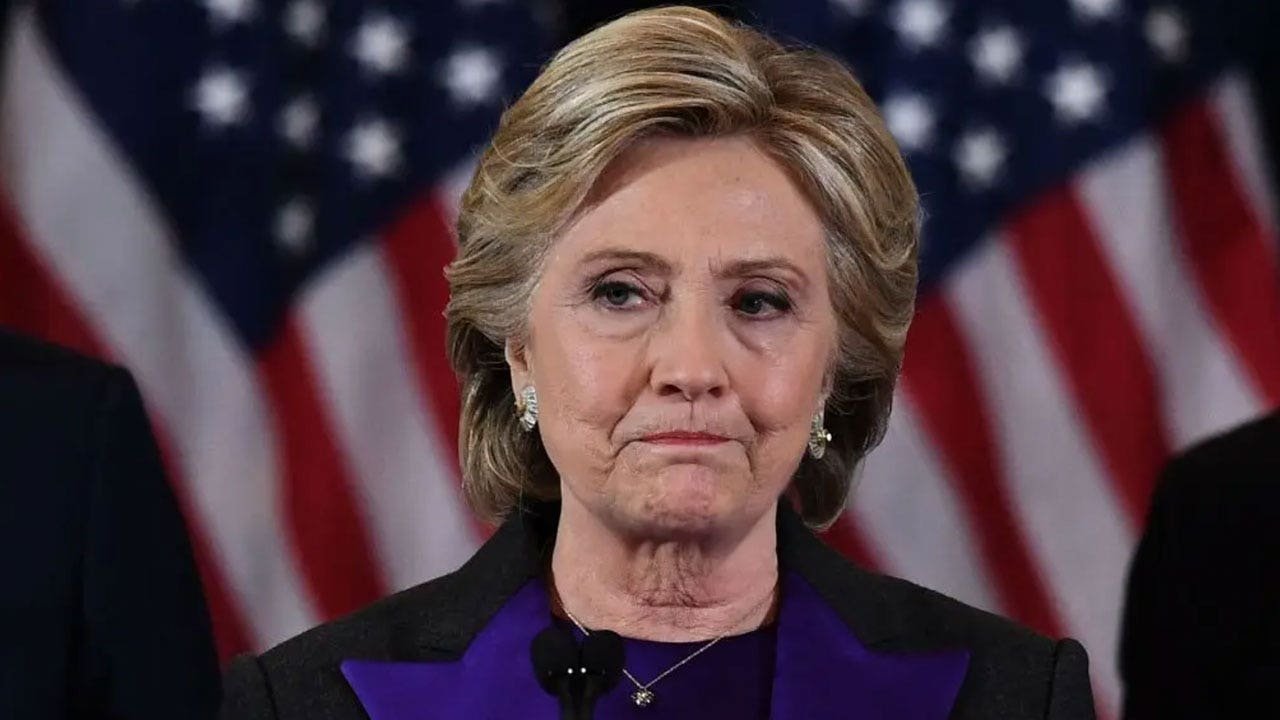
NEWYou can now listen to Fox News articles!
Senate Judiciary Committee Chairman Chuck Grassley released declassified documents related to the FBI’s investigation into former Secretary of State Hillary Clinton’s private email server when she served in the federal government, revealing the FBI reportedly «failed to fully investigate» the matter.
«This document shows an extreme lack of effort and due diligence in the FBI’s investigation of former Secretary Clinton’s email usage and mishandling of highly classified information,» Grassley said in a Monday press release.
«Under Comey’s leadership, the FBI failed to perform fundamental investigative work and left key pieces of evidence on the cutting room floor,» he continued. «The Comey FBI’s negligent approach and perhaps intentional lack of effort in the Clinton investigation is a stark contrast to its full-throated investigation of the Trump-Russia collusion hoax, which was based on the uncorroborated and now discredited Steele dossier. Comey’s decision-making process smacks of political infection.»
Clinton, who served as former President Barack Obama’s secretary of state from 2009 to 2013, was investigated by the FBI over claims she improperly stored or transmitted classified materials on a private email server. The FBI advised the Department of Justice in 2016, ahead of that year’s massive election that pitted Clinton against future President Donald Trump, that Clinton should not face prosecution over the matter.
OBAMA OFFICIALS ADMITTED THEY HAD NO ‘EMPIRICAL EVIDENCE’ OF TRUMP-RUSSIA COLLUSION: HOUSE INTEL TRANSCRIPTS
Senate Judiciary Committee Chairman Chuck Grassley released declassified documents related to the FBI’s investigation into former Secretary of State Hillary Clinton’s private email server and handling of classified materials. (Jewel Samad/AFP via Getty Images)
«Although there is evidence of potential violations of the statutes regarding the handling of classified information, our judgment is that no reasonable prosecutor would bring such a case,» then-FBI director James Comey said in a press release. «Prosecutors necessarily weigh a number of factors before bringing charges. There are obvious considerations, like the strength of the evidence, especially regarding intent. Responsible decisions also consider the context of a person’s actions, and how similar situations have been handled in the past.»
OBAMA OFFICIALS USED DOSSIER TO PROBE, BRIEF TRUMP DESPITE KNOWING IT WAS UNVERIFIED ‘INTERNET RUMOR’
Grassley specifically released declassified materials from the «Clinton annex,» which is an appendix to the Department of Justice Office of Inspector General’s 2018 report that reviewed the DOJ and FBI’s handling of the Clinton investigation. Attorney General Pam Bondi, and other Trump administration leaders at other agencies, declassified the materials and delivered them to Grassley at his request, his press release reported.
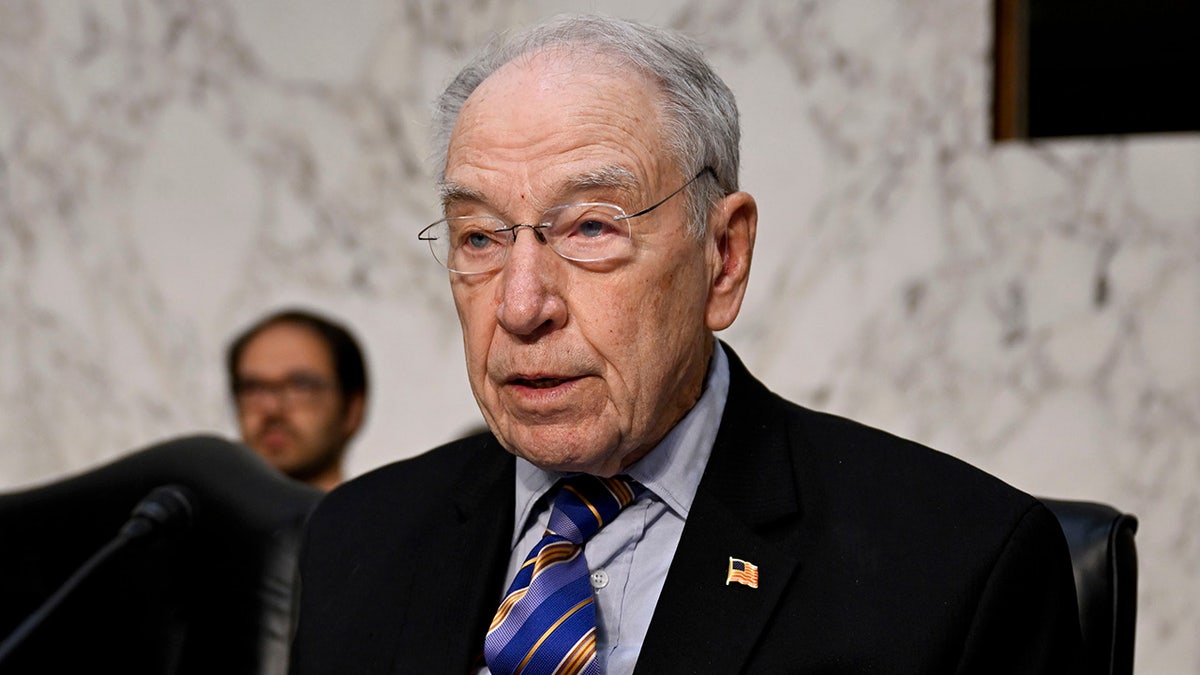
Senator Chuck Grassley reported July 21, 2025, that there was an «extreme lack of effort and due diligence in the FBI’s investigation of former Secretary Clinton’s email usage and mishandling of highly classified information.» ( Daniel Heuer/Bloomberg via Getty Images)
The documents claim that then-FBI Director Comey, as well as other FBI leaders, obtained thumb drives related to their investigation into Clinton, but that the agency failed «to perform additional, targeted searches of the drives,» according to Grassley’s office.
FBI LAUNCHES CRIMINAL INVESTIGATIONS OF JOHN BRENNAN, JAMES COMEY: DOJ SOURCES
The thumb drives reportedly were never reviewed during the investigation, but «contained highly sensitive information exfiltrated from U.S. government agencies, including the Department of State, as well as then-President Barack Obama’s emails and, potentially, congressional information.»
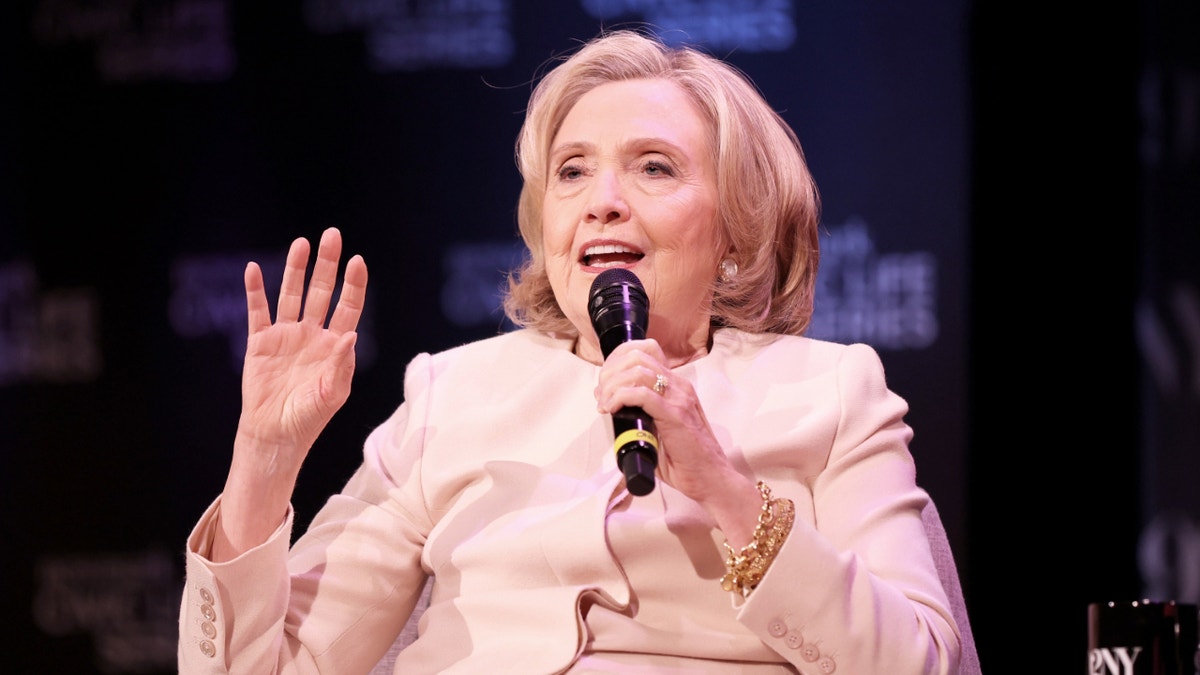
Former presidential candidate Hillary Clinton’s email server is back on the nation’s radar following Sen. Grassley releasing declassified documents. (Getty Images)
The FBI also obtained intelligence that alleged communications between Florida Democrat Rep. Debbie Wasserman Schultz, who served as Democratic National Committee chair until July 2016 when she resigned, and individuals who worked for the Soros Open Society Foundations, which was founded by left-wing billionaire donor George Soros.
GRASSLEY EXPOSES FBI USE OF BIASED SOURCES IN ANTI-TRADITIONAL CATHOLIC MEMOS UNDER BIDEN ADMINISTRATION
«The intelligence reports alleged that the Obama administration took efforts to scuttle the investigation into Clinton and protect her candidacy,» Grassley’s release reported, but that the FBI at the time did «not make serious investigative efforts» into the intelligence reports.
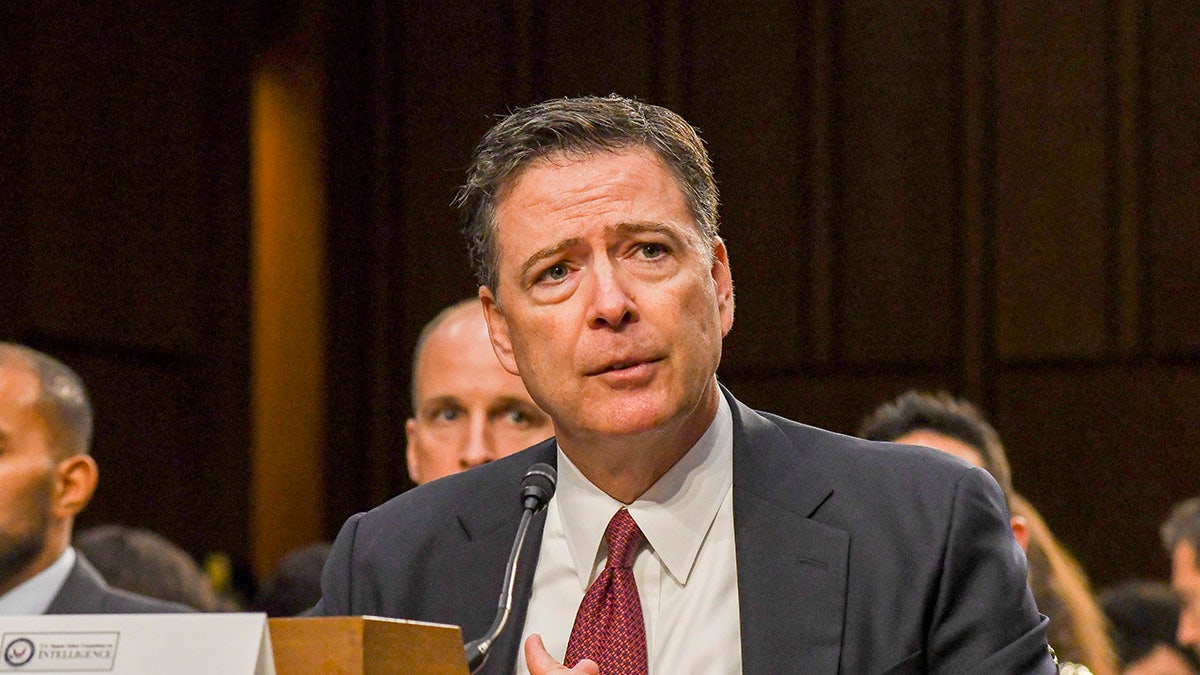
James Comey oversaw the FBI amid its investifation into Hillary Clinton’s emails. (Mark Reinstein/Corbis via Getty Images)
Fox News Digital reached out to Clinton’s office, Wasserman Schultz’s office, the Soros Open Society Foundations and the Kettering Foundation, where Comey currently works as a senior fellow, for comment on Grassley’s release, but did not immediately receive replies.
«I warned years ago that the Clinton investigation failed to hit the mark, and I’m grateful the American people can finally see the facts for themselves,» Grassley said in the press release. «After nearly a decade in the shadows, this information is now coming to light thanks to Attorney General Pam Bondi and FBI Director Kash Patel’s dedicated efforts to fulfill my congressional request.
«I appreciate their ongoing commitment to transparency and strongly urge them to continue to fully review this matter, including its national security impact,» he said.
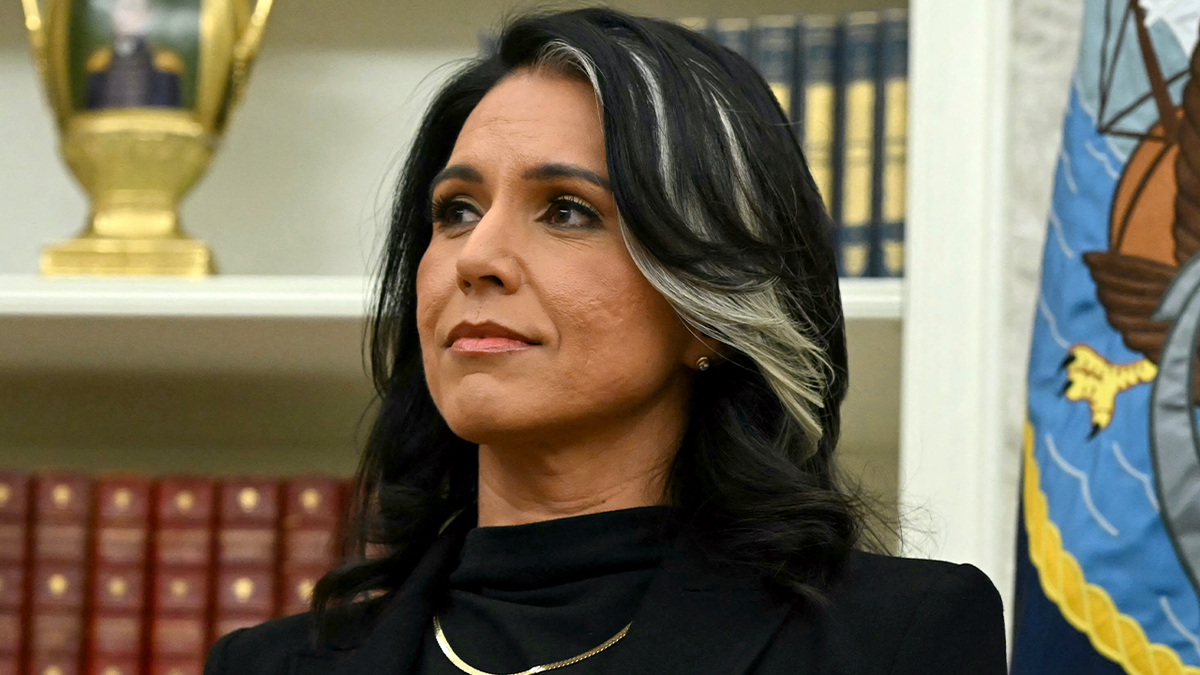
DNI Tulsi Gabbard revealed Obama-era officials allegedly «manufactured and politicized intelligence» to create the narrative that Russia was attempting to influence the 2016 presidential election. (Andrew Caballero-Reynolds/AFP via Getty Images)
Grassley’s release follows Director of National Intelligence Tulsi Gabbard’s bombshell claims that Obama-era officials reportedly «manufactured and politicized intelligence» to create the narrative that Russia was attempting to influence the 2016 presidential election.
Gabbard released unclassified documents Friday that reportedly show «overwhelming evidence» that then-President Obama and his national security team laid the groundwork for what would be the yearslong Trump-Russia collusion probe after Trump’s election win against Clinton in 2016.
CLICK HERE TO GET THE FOX NEWS APP
«Their goal was to usurp President Trump and subvert the will of the American people,» Gabbard had posted to X on Friday regarding the criminal referral. «No matter how powerful, every person involved in this conspiracy must be investigated and prosecuted to the fullest extent of the law. The integrity of our democratic republic depends on it. We are turning over all documents to the DOJ for criminal referral.»
Fox News confirmed earlier Monday that the DOJ received Gabbard’s criminal referral related to the matter but did not share additional comment.
INTERNACIONAL
Iran seeks China, Russia help to stall UN sanctions ahead of nuclear talks with Europeans
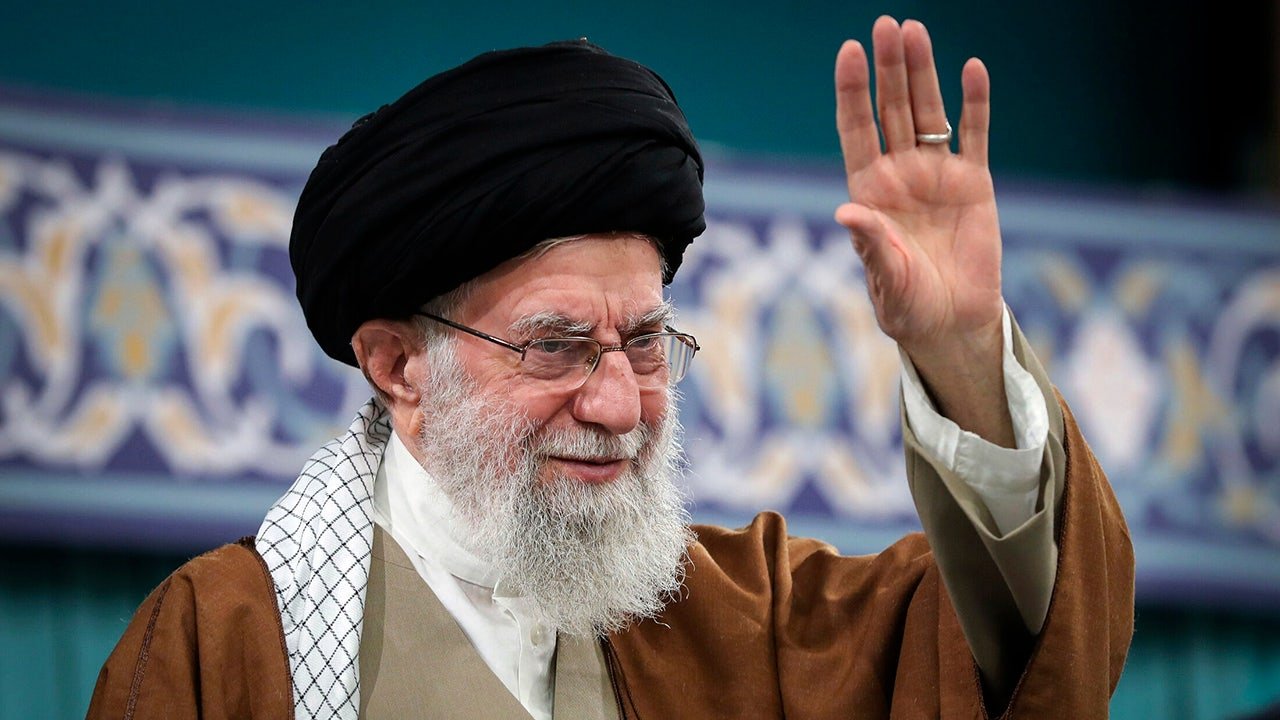
NEWYou can now listen to Fox News articles!
Iran said it will hold talks with Russia and China on Tuesday in an attempt to circumvent U.N. snapback sanctions as the deadline for a nuclear agreement looms.
«We are in constant consultation with these two countries to prevent activation of the snapback or to mitigate its consequences,» Foreign Ministry spokesman Esmail Baghaei said during a Monday press briefing, reported Iran International. «We have aligned positions and good relations.»
Both China and Russia are signatories of the 2015 Joint Comprehensive Plan of Action (JCPOA), an agreement that seemingly failed to end Iran’s nuclear ambitions following the U.S. withdrawal from the deal under the first Trump presidency in 2018 and the subsequent nuclear advances Tehran made.
Chinese Foreign Minister Wang Yi stands with Russian Deputy Foreign Minister Sergey Ryabkov and Iranian Deputy Foreign Minister Kazem Gharibabadi, before a meeting regarding the Iranian nuclear issue on March 14, 2025, in Beijing. (Pool via Reuters)
IRAN VOWS RETALIATION IF UN SECURITY COUNCIL ISSUES SNAPBACK SANCTIONS ON ANNIVERSARY OF NUCLEAR DEAL
The news of the impending meeting comes one week after France, Germany and the U.K. announced they would enforce snapback sanctions on Tehran if it fails to enter into a new nuclear agreement by the end of August.
What would need to be included in a new nuclear deal remains unclear and Iran has not yet renewed nuclear negotiations with the U.S. after Washington levied significant strikes against its top atomic facilities last month in coordination with Israel.
The snapback mechanism was reserved under the JCPOA and allows any signatory of the agreement to recall stiff international sanctions on Iran to be enforced by all 15 members of the United Nations Security Council – including Russia and China – if Tehran is determined to have violated the terms of the 2015 deal.
Since the first Trump presidency, the U.S. has threatened the use of snapback sanctions, though Washington can no longer call for the re-implementation of the economic tool as it left the agreement – a decision determined by the U.N. and the other JCPOA signatories.
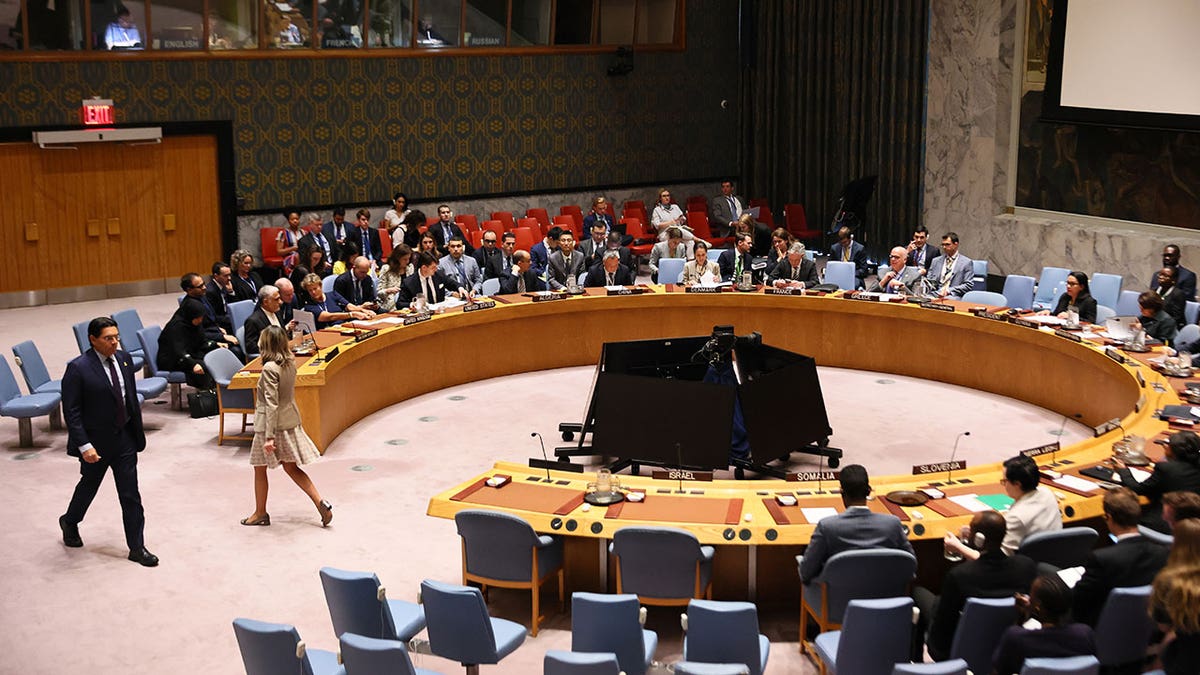
The Security Council meets at United Nations headquarters on June 13, 2025, in New York City. (Michael M. Santiago/Getty Images)
IRAN FACES AUGUST DEADLINE TO ACCEPT COMPREHENSIVE NUCLEAR DEAL OR FACE RENEWED UN SANCTIONS
But top D.C. officials, like Secretary of State Marco Rubio, have continued to encourage European allies to use this tool to push Iran to cease nuclear development.
Iran is also set to hold talks with France, Germany and the U.K. – an alliance also known as the E3 – this Friday, though the window to secure a new nuclear deal is closing despite years of repeated attempts.
«Snapback at the UNSC remains, not just the Trump administration’s, but the international community’s most powerful political and diplomatic tool against the Islamic Republic of Iran’s nuclear program,» Behnam Ben Taleblu, Iranian expert and senior director of the Foundation for Defense of Democracies’ Iran program, told Fox News Digital.
«Snapback and a restoration of older, tougher UNSC resolutions that contain arms export prohibitions, missile testing prohibitions, as well as a panel of experts to monitor sanctions compliance, will actually magnify the political and military dividends that the U.S. and Israeli strikes have given,» he added.

A banner depicting Ayatollah Ali Khamenei is placed next to a ballistic missile in Baharestan Square in Tehran, Iran, on Sept. 26, 2024. (Hossein Beris/Middle East Images/AFP via Getty Images)
CLICK HERE TO GET THE FOX NEWS APP
Security experts have been sounding the alarm for months that it will take roughly six weeks for U.N. sanctions to be enforced, largely due to procedural reasons, and the ability to enforce snapback sanctions under JCPOA terms will expire on Oct. 18.
Ben Taleblu also warned that these intense sanctions on Iran could instigate further security threats to the West when it comes to Tehran’s nuclear program, as it could prompt Iran to leave other major international nuclear agreements like the Treaty on the Non-Proliferation of Nuclear Weapons (NPT).

 POLITICA2 días ago
POLITICA2 días agoJuan Carlos Maqueda defendió la condena contra Cristina Kirchner: “Hay una sensación de que se hizo Justicia y que no hay impunidad”

 ECONOMIA3 días ago
ECONOMIA3 días agoAlarma por el dólar: la volatilidad se mantiene, pese a las medidas urgentes de Caputo

 POLITICA24 horas ago
POLITICA24 horas agoExpulsada del Gobierno, Victoria Villarruel empieza a tomar distancia, pero no tiene proyecto político para este año
























